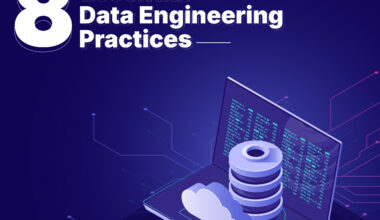Whether you’re an experienced Data Engineer seeking a promotion or a big data beginner trying to break into the role, getting ready for an interview can be daunting. Given how competitive this market is, being well-prepared for your interview is essential. By enrolling in a data engineering course near me in bbsr, you can get the necessary training and certification to ace your next data engineer job interview. Here are some of the most common questions asked during data engineer interviews.
1. What is Data Engineering?
Regardless of your experience, this seemingly simple data engineer interview question could still be asked. Defining data engineering thoroughly shows you understand the field and its requirements well. Data engineering involves processing, cleaning, organizing, and combining massive data collections. Going further, you can talk about what a data engineer does daily, including designing and extracting ad hoc data queries, taking ownership of an organization’s data stewardship, etc.
2. What does a data engineer do?
This is a common question for data engineers who are being interviewed. This question aims to test how well you understand the duties and responsibilities of a data engineer.
A data engineer’s primary responsibilities include:
- Architecture development, testing, and maintenance.
- Aligning design with business needs.
- Operations for gathering data and creating data sets.
- Implementing statistics and machine learning models.
- Building ETL pipelines and data transformation tools.
- Enhancing data building and de-duplication while making data cleansing easier.
- Finding methods to enhance data’s precision, adaptability, accuracy, and quality.
3. How are data scientists and data engineers different?
This question aims to assess how well you understand the responsibilities of a data warehouse team. Although there is some overlap in the abilities and duties of the two roles, they are still different.
Data scientists examine and make sense of complicated data, whereas data engineers design, test, and manage the whole data generation architect. For data scientists to do their jobs, data engineers must first build the necessary infrastructure.
4. What key skills are needed to work as a Data Engineer?
Every company has standards for what constitutes a data engineer, and this question aims to determine whether you meet those standards. To do well as a data engineer, you need the following abilities and experience:
- Deep understanding of data modeling.
- Proficiency in database architecture and design.
- Advanced Database Expertise – SQL and NoSQL.
- Work with distributed systems and data storage, such as Hadoop (HDFS).
- Excel in data visualization.
- Proficient in using ETL (Extract, Transform, and Load) tools for data warehousing.
- Good with numbers and computers.
- Having exceptional skills in leadership, critical thinking, problem-solving, and communication.
5. What is Data Modelling?
Before diving into data analysis and database architecture, it’s essential to do some data modeling. The goal of the question is to assess your level of expertise. Data modeling is the process of breaking down complicated software plans into simple diagrams that are easy to understand. If you have any background in data modeling, you can describe it using examples.
6. What are the different kinds of design schemas that are important for data modeling?
To test your familiarity with data engineering basics, prospective employers might ask questions concerning design schemas. There are primarily two kinds of schemas used in data modeling:
Star schema: A fact table is encircled by dimension tables in a star schema.
Snowflake schema: In a snowflake schema, a fact table is encircled by dimension tables containing similar dimension tables.
7. What are the critical Hadoop components?
When it comes to data engineering, Hadoop is a crucial tool. It is a game-changer in the database industry, providing storage space and processing capacity to most modern big apps that generate massive amounts of data. Hadoop has many components, including:
- Hadoop Common
- HDFS
- Hadoop YARN
- Hadoop MapReduce
8. What is NameNode in HDFS?
In Hadoop’s HDFS architecture, the master node is named NameNode. It saves HDFS data and tracks different files across all clusters. While NameNodes store HDFS metadata, they do not store any actual data. The DataNodes are where the accurate data is kept.
9. How does NameNode communicate with DataNode?
NameNode receives data and communicates with DataNode through signals and messages. For this channel-to-channel communication, two kinds of messages/signals are used:
- Block report signals
- Heartbeat signals
10. In Big Data, what are the four Vs?
Big Data is based on the following forms:
- Volume
- Variety
- Velocity
- Veracity
Want to do well in the data engineer interview? Get your skills up by enrolling in the leading institute for data engineering in Bhubaneswar.
11. What’s a Data Lake?
A data lake is a warehouse that can store vast amounts of data. Its ability to store large amounts of data and allow multiple activities to run simultaneously makes it a valuable tool.
12. How does cloud computing fit into the data engineering?
The ability to access resources on demand through cloud computing greatly simplifies the management, analysis, and storage of massive data sets. It simplifies and reduces the cost of working with huge data for Data Engineers.
Conclusion
Getting proper training and certification is the way to ace your next interview for a data engineer position. If you want to work in the data engineering field, join a data engineering course near me in BBSR.
Data engineering is quickly rising in popularity, and attending AVD Group can lead you to a successful career in the industry. They offer top-notch instruction and will help you become a certified professional in the industry. Visit the website to learn more.








